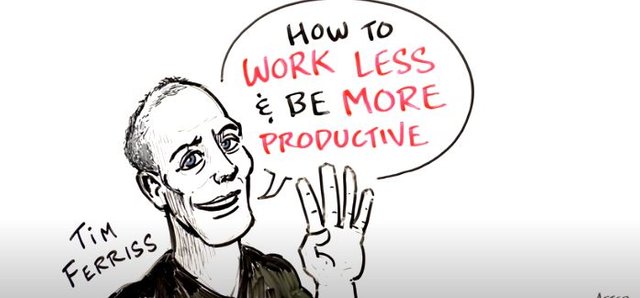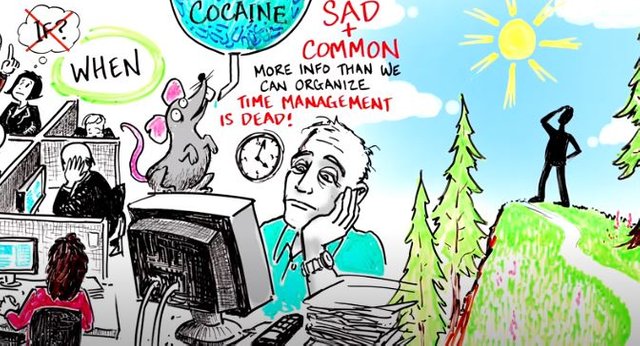The,4-hour workweek is possible but you need to completely unplug and reset and the reason that's necessary there's an epidemic and I do mean epidemic in this country of information abuse an information addiction where people have come to believe that checking email 200 times per day having a blackberry to your head or in your hand while you're at dinner or on the subway or in your car or with your friends is the path to becoming more productive and more successful it isn't because giving everyone around you. Every person in the world immediate access to you is inviting interruption and inviting minutiae to completely invade your life if you're interrupted by email and phone there was an experiment done at Kings Kings College, for example, to showed that people who were stoned scored six points better on my Q test and people were interrupted by email and phone twenty six percent of people in the American workforce are on the verge of a nervous breakdown the system is not working so it's not a question of if I should do this question of when it is the only real alternative so from 2000 to 2004.
I was working at startups in Silicon Valley and I worked from 7:00 a.m. to 9:00 p.m. every day I checked Outlook hitting send receive 100 to 200 times per day like a rat with a cocaine pellet dispenser slept under my cubicle sent emails on Thanksgiving to prospects it was a depressing scene and it's a very unfortunately common scene and I think everyone is at a point of overwhelm there is more information than we can organize time management is dead the way turnaround is you have to completely unplug and reset that means you need to take a step back forget about what people expect you to do forget about what's popular and look at what works and what is consuming your time. so there are four steps there's definition elimination automation and liberty definition is simple first need to define your ideal lifestyle what do you want to be doing from when you wake up to when you go to sleep and so what do you want to have what do you want to be what you want to do and how much does that ideal lifestyle cost and that becomes your target elimination is simple it's getting rid of everything all the static all the noise all the interruptions.
All the micromanaging all the people are possible that interfere with getting you to the ideal lifestyle the third automation is about taking the few remaining tasks that are important the time-consuming and either delegating automating or somehow outsourcing them and then the last step liberation is about the final ingredient in lifestyle design which is mobility and then also how to use the time once you create it income has no practical value lifestyle output value without time the objective is not busyness so massive action without clearly defined objectives is a form of laziness. you don't have to get a lot of things right if you pick the right things what you do matters a lot more than how much you do or how well you do things if you pick the right targets you can get a very very high ROI it's more important to eliminate you know in culture and in an environment where there's always more information than the attention it's not scalable to organize and absorb all that information you have to apply filters so if you don't eliminate first and you get very good at the processes what happens is you become extremely efficient.
But not effective so let me take a step back so being efficient is getting very good at a certain task whether or not it is important becoming effective is doing what is important and I think that especially in the technology world people are apt to become a very process-driven and a task taking a lot of time or having invested a lot of time does not make a task important the concepts.

